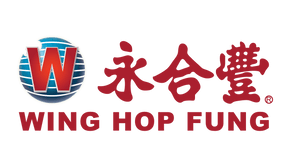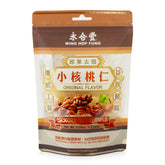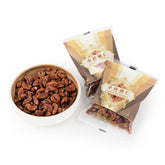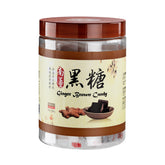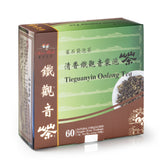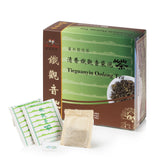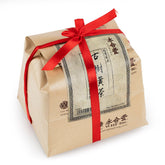Chongyang Festival for Double Health

Chongyang Festival for Double Health
October 4, 2022 during Chinese Golden Week
Golden Week, a three day work holiday in China begins October 1st the anniversary of the founding of the People’s Republic in 1949. It is a time set aside for travel, visiting the family and state celebrations, including a military parade in Tiananmen Square, flag-raising ceremonies, fireworks, and performances. In the midst of that “Rah Rah!” is a quiet day set aside to honor Nature, our elders and family love called “Chongyang.” It’s sometimes called Double Nine because it is celebrated on the ninth day of the ninth lunar month.
The traditional Chinese Chongyang Festival, celebrated in China and among sinophiles around the world, observes the splendor of Autumn and our love of chrysanthemum and dogwood. Like many traditional festivals it is based upon a legend: During the East Han Dynasty, there was a demon living in the Ruhe River. When it showed up, the people got sick and died.
A Hero with Herbs
Those living around the Ruhe River were ravaged by the plague and cholera. A man named Huan Jing whose parents died from the plague also nearly died. Huan Jing heard about an Immortal who lived to the East so he took a long journey to find the Immortal, probably an herbal doctor/magician. The Immortal had a long white beard and a pleasant smile as he sat on a mountain top drinking a cup of chrysanthemum tea. He taught Huan Jing magic arts so he could kill the devil of the plague who lived in the river.
The Immortal told Huan Jing that the plague would return on the ninth day of the ninth month. He told Huan Jing to go back to the river and kill the demon with chrysanthemum and dogwood which were in bloom. When Huan Jing returned home to the river, he asked the whole community to go to the mountains with a fragrant Zhuyu tree branch (dogwood) and a glass of chrysanthemum wine. When the devil of the plague emerged from the river water, it became dizzy from the heady fragrance of the Zhuyu and the chrysanthemum. Then Huan Jing took a sword and killed the devil of the plague.
Chongyang in China
Climbing mountains and drinking Chrysanthemum tea has become a Chinese custom on the Double Ninth Festival. This year the Double Ninth Festival, also called “Senior’s Day,” falls on October 4, 2022.
Traditional Medicine as Code
Like many ancient writings, this story represents a code message containing important health information. The earliest Chinese medical texts were written in response to epidemic disease, the plague. The Double Nine story features two herbs, dogwood and chrysanthemum, used to enhance vital yang energy’s movement upward and outward that enhances immunity to fatigue and illness.
Yin and Yang
In Chinese Taoist theory the symbols Yin and Yang represent opposite energies that pervade all of nature, including our body and mind. Yin represents interior, dark, night, and female aspects and Yang represents exterior, light, daytime and male aspects. Yin is Earth and Yang is Heaven. They complement and protect each other. They are the source of life for us and Nature.
Yang in Chinese Medicine
A yang movement of energy in the body is upward and outward, the kind of qi energy that moves “evil influences” such as chills, germs and allergies out of the body. Yang energy is necessary to protect us from the invasion of illness. The number 9 is also considered yang. The Chinese word for NINE 九 Jiǔ sounds like the Chinese word for OLD 旧 Jiù. Hence Chongyang day is also called “Senior Day.” Seniors typically need to boost metabolism and energy which may be reduced from stress, illness, medicines and aging.
Two Yang Herbs
Yang also refers to the two herbs mentioned in the story of Huan Jing, dogwood tree and chrysanthemum flower. Combining dogwood tree berries, (aka cornus, cornelian cherry, Common Macrocarpium Fruit/ Shan Zhu Yu) a strong source of vitamin C and Chrysanthemum flower, used to reduce fever and headache, make a cooling, detoxifying tea. In the legend, the river, a common source of cholera, posed a danger for the people, especially to the weak and elderly or during a time in Autumn (cold/flu season) when people needed Yang energy to lift their immunity against germs and raise their vitality and increase longevity.
Reduce Fever, Increase Qi
Chrysanthemum is a flower that symbolizes vitality for Chinese culture. The flower tea is an elegant, fragrant, sweet and delicious beverage for Immortals. It reduces fever, headache and cloudy vision.
Cornus, also called Cornelian cherry, the fruit of the dogwood tree, a strong source of vitamin C, may be used in herbal formulas that enhance vitality and immunity. It has been used to treat tinnitus, dizziness and extreme shock; extracts may be effective against the salmonella and shigella bacteria. In some cases, cornus bark is used as an astringent to treat fevers and combat malaria. The astringent (sour cherry) fruit is a good treatment for bowel complaints and fevers, and it has been also used in the treatment of cholera.
Strengthen Digestion, Reduce Stress for a Long Happy Life
The legend of Double Nine, Chongyang, teaches us about two herbs that enhance immunity during Autumn, cold/flu season and how to avoid certain discomforts associated with aging. In traditional Chinese medicine, great emphasis is placed on healing digestion in order to maintain wellness.
Stomach/Spleen in traditional Chinese medicine
Our stomach and spleen create digestive and emotional harmony. Foods, herbs and acupuncture may be used to enhance their functioning. Important acupuncture points have been given names that represent their use. In the Stomach meridian, Source Point, ST-42 is called Chongyang, “Surging Yang” located on the top of each foot. Stimulating the point is used to clear heat from the Stomach meridian, harmonize the stomach organ, calm the spirit, activate the channel, and heal pain. Located on the foot, that point helps to reduce congestion and poor circulation that affects digestion. Indications include:
- Gastric pain, abdominal distention
- Swelling and pain of the dorsum of the foot
- Swelling of the face, toothache, deviation of the mouth and eye.
Worry (obsession) is the emotion that is said to trouble the spleen and stomach organs associated with the Earth element in the body. Too much pensiveness, worrying and insecurity weaken our ability to digest food and ideas. When we are anxious, we find it hard to accept or function effectively during a stressful situation or life event. So improving stomach/spleen energy with foods, herbs, exercise, massage or acupuncture improves digestion, absorption and mood. That supports healthy immunity to stress, illness and aging.
How to Celebrate Chongyang Festival
In Chinese communities world wide, on the ninth day of the ninth month, people climb mountains, taking the high ground away from the river, and admire chrysanthemums which are in bloom. They may not know the ancient legend or the medicinal effects of cornelian cherry Common Macrocarpium Fruit/ Shan Zhu Yu or Chrysanthemum flower. Although chrysanthemum is a popular drink during hot, polluted weather, since it reduces migraine, computer eye strain, hypertension as well as fever. We advise drinking cornelian chrysanthemum tea to lift our spirits and energy and prepare for the coming colder weather and flu season. Chrysanthemum wine takes a year to make by steeping the flowers in sake. Some people like to drop the fragrant flowers into their wine glass of sweet vermouth.
Many widely-known poems were created for Chongyang by poets in the Tang Dynasty (618 - 907) describing the scene and feeling of mountain climbing. Now, family relatives or good friends gather to enjoy beautiful scenery and share happiness of the holiday with each other. As chrysanthemums blossom during the festival, it is a pleasure to admire the various chrysanthemums in Chinese parks. Grand chrysanthemum exhibitions are held in big parks that attract numerous visitors.
Double Nine Festival Foods
The custom as wear dogwood flowers and leaves to dispel the disaster in people's values was popular in the old days. Now during the festival, Chongyang cake and chrysanthemum tea are the traditional cuisine. Chongyang Cake is a steamed layer cake made with nuts and jujube dates. Since cake in Chinese is pronounced 'gao' meaning high, people consider climbing a high mountain enjoying fresh air to be as sweet as eating cake. Also personal progress is thought to be made in the following days after eating the cake, for 'high' means that one makes improvements moving to a higher level.
Harvest Time Legends
Chongyang, Double Nine, was originally a day for farmers to celebrate harvest crops. The festival, born in the Warring States period (475-221 BC), became popular in the Han Dynasty (206 BC-220 AC). At that time, Queen Lv was so jealous of Concubine Qi, who is one of the favorite of Liu Bang (the first emperor of the Han Dynasty, 256 or 247-195 BC), that she ill-treated and drove her maid out of the imperial palace to marry a commoner after the emperor’s death.
This maid, known as Miss Jia, told people that in the imperial palace, every ninth day of the ninth lunar month, they wore small twigs of dogwood in their hair and drank chrysanthemum wine, otherwise there would be disasters. Later many common people followed the custom and it gradually prevailed all over the country. In the year of 1989, Double Ninth Festival was designated as Senior's Day, a day to respect the elderly. Many companies organize groups where retired people go out to climb mountains or on other outings. Members of the family accompany their elders to have a relaxing day in a natural setting and wish for health and happiness.
Recommended Recipes
Wing Hop Fung sells delicious Chrysanthemum flowers for making tea and a number of herbal products that contain Cornelian cherry (aka cornus, corni Common Macrocarpium Fruit/ Shan Zhu Yu). Here are a few classical healing teas that are useful for Autumn, colds and flu, and aging.
- Five Flowers Tea
For reducing sore throat, congestion and eye strain
Ingredients: Honeysuckle, Chrysanthemum, Sophora japonica, Kapok, Frangipani
Honeysuckle (lonicera japanica), a broad-spectrum antibiotic herbal medicine known to reduce staff, strept, and pneumonia germs, is the unopened bloom that is called in Chinese gold and silver flower. It is slightly bitter and soothing for sore throat, breast, and skin infections. Combined with chrysanthemum flower, it is recommended as a cold/flu remedy. Chinese chrysanthemum is sweet and delicious.
- Thirst Quencher Tea
消渴玉泉湯 (Xiao Ke Yu Quan Herbal Soup)
Moistening, refreshing, helps balance blood sugar
A number of herbs in this tea are used in medicinal formulas that treat diabetes and reduce stress. In that way it is similar to Relax and Thrive (aka Six Flavor Rehmannia Tea) and Beauty and Longevity Tea. However this formula adds balsam pear, polygonum multi., snakegourd, wolfberry (aka goji berry) Cornelian cherry and astragalus which raises its potential as an immune boosting treatment.
Polygonum multiflorum, (he shou wu, fo-ti,) is a blood tonic that is used for a wide variety of discomforts from premature grey hair to diabetes. WebMd reports: “Fo-ti is commonly used to help treat or prevent conditions related to aging, including cancer, heart disease, and memory problems.” Fructus corni, the fruit of the Cornelian dogwood tree, a cherry that is an excellent source of vitamin C. The kidneys are challenged in diabetes and some diabetes medicines are known to reduce sexual capacity. Vitamin C is a good general tonic for the entire body, for formation of collagen and joints and is especially helpful for the kidneys.
- A Strong Back, Muscles and Bones
壯腰健腎茶 (Zhuang Yao Jian Shen Herbal Tea):
for weakness or pain in the lower body: low back pain, weak back, hips, knees, legs, weak tendons.
Cautions and Contraindications: Heating. Avoid during a cold or flu.
Aging, injuries, use of certain drugs such as steroids, smoking and bad habits wear out our muscles, joints and bones. This is a warming tonic that contains herbs that are precursors to testosterone, among others. Either men or women may use A Strong Back, Muscles and Bones for exhaustion with chronic pain and weakness. However a warming tonic will have side-effects for people who already have inflammation issues. It should be avoided during a cold or flu, fever, headache, acne or other internal heat discomforts. Inflammatory heat feels hot, burning, pounding, unrelenting and sometimes disorienting. . .
A Strong Back, Muscles and Bones may prove to be a useful fall/winter tonic for weak or aging people or anyone who suffers from chills and weakness, and chronic deep aches and pains that improve with application of heat and gentle massage. Chinese doctors recommend this remedy for people with kidney yang and kidney qi deficiency: 补肝肾、益精髓、强骨健筋 which may manifest as the body’s inability to support strong muscles and bones with many resulting health issues ranging from chronic diarrhea, bone fractures, back and leg pain, poor circulation, low sexual vitality and osteoporosis. Since the Kidney/adrenal Qi impacts many aspects of health in the body, there may be accompanying troubles such as low immunity, depression, obesity, heart weakness or being accident prone. . .
Kidney tonic herbs in this formula include corni, Cornelian dogwood cherry, a strong source of vitamin C and a sexual and aphrodisiac tonic epimedium colorfully known as “horny goat weed.” Given to goats, who usually need no prompting, resulted in more kids. For humans epimedium (yin yang huo) is a precursor to testosterone. According webmd.com “epimedium is used for erectile dysfunction (ED) and low sexual desire. It is also used for weak back and knees, joint pain, arthritis, mental and physical fatigue, and memory loss along with many other conditions.” The other conditions include that it promotes circulation in the limbs and is often used for post-stroke patients who have stiffness, numbness, and paralysis. Epimedium has antibiotic and antihypertensive effects. … etc.
- Prostate Health
前列腺湯 (Qian Lie Xian Herbal Soup)
for enlarged prostate discomfort, tonifies kidney, reduces inflammation
Prostate discomforts are a very common problem especially for men over age 40 or men who smoke. It is made worse from a stressful, sedentary lifestyle, smoking, obesity, and an overly rich inflammatory diet. “Daily red meat consumption has proven to triple a man's chance of developing BPH and is also linked to prostate cancer. Other irritating foods include alcohol, caffeine and salt.” (advancedurology.com) Many medications that cause urinary retention can worsen symptoms of BPH benign prostatic hyperplasia. These types of medications include antihistamines, decongestants, diuretics, opiates, and tricyclic antidepressants.
BPH discomfort may feel as though sitting on a hard knot or swelling with or without infection. Prostate Health remedy may be used with or without prescribed medications since the herbs are gently anti-inflammatory, detoxifying and diuretic to encourage healthy blood flow in the prostate area. When using herbal remedies along with medical drugs, separate them by at least two hours to avoid interactions.
The action of this formula is detoxifying yet supportive with cooling tonic herbs that enhance blood production, herbs that stir circulation and diuretic herbs that bring those qualities to help clear the prostate area. Energy and sexual tonics are included to support the lower back and prevent weakness. . . .
Kidney tonic herbs in this formula include Corni, Cornelian dogwood cherry, a strong source of vitamin C and a sexual and aphrodisiac tonic epimedium colorfully known as “horny goat weed.” Given to goats, who usually need no prompting, resulted in more kids. Epimedium (yin yang huo) is a precursor to human testosterone. According webmd.com “epimedium is used for erectile dysfunction (ED) and low sexual desire. It is also used for weak back and knees, joint pain, arthritis, mental and physical fatigue, and memory loss along with many other conditions.” The other conditions include that it promotes circulation in the limbs and is often used for post-stroke patients who have stiffness, numbness, and paralysis. Epimedium has antibiotic and antihypertensive effects.
Several diuretic herbs play an important roll in this formula. They include Solomon’s seal, water plantain, and fuling aka Tuckahoe which grows on pine trees. Strongly anti-inflammatory anemarrhena is usually added to formulas to reduce fever. Here it helps to reduce prostate swelling. … etc.